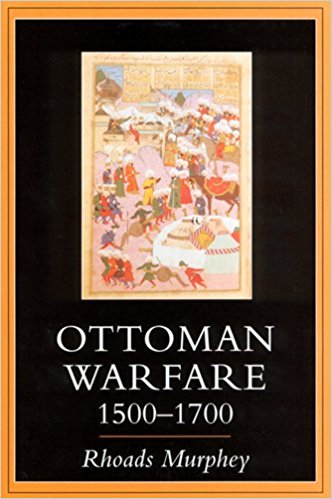Below you will find a list of books that members of the Geopolitical Futures team are currently reading. It highlights insightful and relevant books from around the globe and the reasons we chose them.
The Stories of John Cheever
By John Cheever
“Unhappy men of means drinking brown liquor – usually encumbered but occasionally gratified by the presence of women” is an unfair and reductive rendering of the world John Cheever created. But it’s not a useless frame of reference. If it strikes a familiar chord among fans of the television series “Mad Men,” it should: Much of the show’s aesthetic was cribbed from Cheever’s works, and its characters could just as easily be found in the pages of “The Stories of John Cheever” as they could in the offices of Sterling Cooper Draper Pryce.
None of this is a criticism, mind you. Cheever is an author of such talent that he should be the object of emulation. He is rightly counted among the best American authors of the 20th century. His prose is so good it should make aspiring stylists angry. And this is coming from someone who used to think Cheever was one of those authors people like to be seen reading, not one they actually enjoy reading. (Looking at you, Proust.)
I no longer think that, of course, and were he alive Cheever might appreciate how caught up I was in the appearance of things, since that is such a recurring theme in his writing. No story captures that theme better than “The Enormous Radio.” It dips its toe into surrealist waters usually waded by the likes of Jorge Luis Borges, Gabriel Garcia Marquez and the criminally underrated Steven Millhauser, but it is just as arresting as Cheever’s more traditional works.
It centers on Jim and Irene Westcott, who look like the classic American family so long as you don’t look too hard. They have a nanny who raises their children. Irene dyes her furs to make them look more expensive. They are middle class but aspire to higher stations they’ll probably never reach. Cheever’s opening description of them is too good, in its subtle but unmistakable damnation, to exclude here: “Jim and Irene Westcott were the kind of people who seem to strike that satisfactory average of income, endeavor, and respectability that is reached by the statistical reports in college alumni bulletins.” For them, advancement is conformity. So imperative is their need to conform that they hide from their contemporaries their guilty pleasure: listening to music, as if this auditory indulgence were somehow taboo among the go-getters of the post-war rat race.
The instrument of their deception is the family radio. When it breaks, Jim purchases a new and, yes, enormous, one – though at great financial cost, as Jim would invariably remind Irene of later. The radio doesn’t so much occupy their living room as invade it. It imposes itself. It’s loud – so loud that it knocks the china off the shelf. But it thereafter malfunctions in a most curious way. Instead of playing Mozart or Chopin or Schubert as it is intended to, it picks up the conversations of Jim and Irene’s neighbors, broadcasting their petty privations right to the Westcott’s living room.
Initially, the Westcotts are spellbound by the intimacy created by involuntarily shared secrets. Irene is especially enthralled. She’s led a sheltered life, and she’s grown accustomed to polished appearances, so hearing her neighbors have sex or use the restroom is nothing short of a revelation.
But secrets are secrets for a reason, and when the Westcotts learn the darker, sadder and more sordid aspects of the lives of the people around them, they are forced to confront their own deprivations, and they don’t like what they see. Jim implores Irene to ignore the transmissions. But she can’t. She’s self-aware now. She agonizes over the possibility – the probability – that their marriage is counterfeit. Jim enumerates their many hardships, which Irene, he says, can neither appreciate nor fathom. He demonizes her for sins long since committed. With his screams, he resurrects all the things they buried to convince themselves the life they live is the same as the life they contrived. And as he does, Irene stands by the radio, wondering if anyone can hear them arguing.
Cole Altom, managing editor
Ottoman Warfare 1500-1700
By Rhoads Murphey
The Ottomans faced unique logistical challenges because of the size of their empire, the variety of threats along their borders and the need to defend against attack both on land and on sea in the eastern Mediterranean. The Ottomans overcame these challenges in part by establishing an elaborate administrative military bureaucracy. Supply depots were stationed along major roads in the empire, minimizing the need to haul the vast amounts of food required to fuel the soldiers, cavalry and pack animals in the march to the campaign theater. Things would still go wrong, as they always do in war, but the Ottoman Empire strived to control the aspects of war that were at least somewhat controllable, such as supply.
Keeping track of the current stockpile of weapons and food throughout its empire required extremely detailed records, which have provided modern researchers with a wealth of knowledge about organizational aspects of warfare that might at first seem mundane but are actually critical. The topics covered in depth include the political considerations made by the central government in levying wartime taxes or choosing to purchase goods at market prices from local suppliers to minimize resentment towards the Porte; why certain animals were used to haul artillery instead of food; the tradeoffs in allocating resources to the navy versus the ground forces; and of course the different types of soldiers that constituted the sultan’s army and the logic behind using professional standing armies in some circumstances and irregular troops in others.
Rather than focusing on the massive mobilizations of transnational forces that were led by the sultan and stand out as exceptions to the rule, Rhoads Murphey, in his book on Ottoman warfare, focuses on how Ottomans usually conducted warfare and what drove them to fight. Smaller armies were often mobilized in border regions to minimize the need to transport janissaries and other members of the sultan’s standing army across the long march to the frontier. More often than not, the Ottomans were driven to war with discrete strategic goals in mind and usually had to achieve objectives in a single campaign season before winter began. This substantially constrained the amount of time available to them to project power to faraway frontier regions.
Sieges were common, and the difficulty in transporting the heavy artillery necessary to breach walls of the larger forts often overcame even the advanced logistic capabilities of the Ottomans. One anecdote recounts the unavoidable risk posed by the fording rivers, when gunpowder needed to sustain heavy artillery fire fell into the water and was ruined, nearly tabling the Ottomans’ ability to continue their siege of Baghdad in 1630.
Murphey makes it a point to dispel some Western narratives of Ottoman marshal prowess that, he believes, do not accurately explain Ottoman military success. For example, it was not the religious zeal of the Ottoman soldiers that accounted for the empire’s successful expansion but the efficacy of its administration. While Western Europe was still struggling with decentralized armies that often depended on foraging for sustenance, the Ottomans’ supply system was relatively more advanced, enabling them to transport and keep track of all the necessary goods that a large army needed to wage war across a thousand miles in either direction of Istanbul.
The importance of Turkey to our forecast led me to Murphey’s book. While the parallels are by no means exact – Murphey’s book deals with the organization and waging of pre-modern warfare – many of the difficulties encountered by the Ottomans then, such as its climate, geography and being surrounded by potential threats, remain relevant. “Ottoman Warfare” truly delves into the nitty-gritty of how the Ottoman Empire waged war during its greatest period of expansion.
Xander Snyder, analyst







 The Geopolitics of the American President
The Geopolitics of the American President